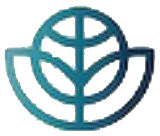Since its inception, the Women in Food and Agriculture (WFA) Mentorship Program has paired hundreds of female mentees with experienced mentors of any gender, creating a beneficial partnership that improves the skills of both parties. The relationships formed provide the space for career growth, confidence building and meaningful peer support that crosses generations, job descriptions and geographical locations. With the application process for the 2025 program currently open, now is a great time to get involved in this initiative.
Mentorship can be seen as a one-way street, with the mentee gaining the most from the experience, but mentors also gain significant value through sharpening their management and coaching abilities, expanding their professional networks and continuing their own personal development.
“Being a mentor offers a unique opportunity to further develop leadership and communication skills,” said Norma Cavazos-Guzman, Senior Advisor of Regulatory Affairs Operational Excellence at Phibro Animal Health who participates in the WFA Mentorship Program “Those leveraged skills can then be applied to your own company and team.”
Some of the most effective mentors are those who once walked the mentee path themselves. Cavazos-Guzman, is one of the WFA mentors who began her journey as a mentee. Mentees make great mentors as they already understand the benefits of mentorship, having experienced personal growth through initiatives like these. Mentees turned mentors can share understanding and empathy with their mentees, as they have been in their shoes working in a male dominated industry and dealing with the complexities of a volatile sector. Since they’ve often faced the same early career challenges, former mentees also bring a unique compassion to the mentoring relationship.
“In my opinion, a great mentor possesses patience, understanding and the ability to inspire and motivate their mentees,” said Cavazos-Guzman. “They should be approachable, open-minded and willing to share their experiences.” These qualities of empathy, openness and generosity come naturally to those who have been mentees themselves. Former mentees understand, firsthand, the vulnerability it takes to ask questions, seek guidance and navigate uncertainty. Because they’ve experienced the journey, they tend to lead with compassion and humility when it’s their turn to offer support.
Blake Leonard, Senior Vice President at Seaboard Marine was another mentee turned mentor within the WFA program. She thinks a great mentor has to be a great listener. “It’s not about giving the ‘right’ answers, but creating space for thoughtful reflection, challenging assumptions and helping develop clarity in the face of complexity.” Former mentees often become mentors who listen with intention and curiosity. They’re skilled at asking the kind of questions that don’t just offer solutions but invite growth and question status quo. Their ability to challenge assumptions stems from having had their own views expanded by mentors in the past.
Leonard felt ready to take the jump from mentee to mentor after progressing into a leadership role at Seaboard. “When I was promoted internally at my organization, I found myself navigating a new dynamic that was unexpectedly isolating,” shared Leonard. “As we move into leadership roles, the support systems we once took for granted often fade… Mentoring allowed me to be vulnerable in ways I didn’t always feel comfortable doing in my formal workplace, and in doing so, it taught me how to foster more authentic relationships at work.”
With mentorship applications open for the next Women in Food and Agriculture cohort, those mentees looking to develop their leadership skills, could find transitioning into mentorship a great step towards understanding the empathy it takes to manage others. Whether you’re a current mentee ready to pay it forward or a newcomer looking for guidance, now is the perfect time to get involved.
“People often hesitate to become mentors because they feel they’re not experienced enough or that they don’t have wisdom to share, but someone is always looking to be where you are now,” said Leonard. “Making the leap to mentorship is less about having all the answers and more about being willing to share your journey.”
If you are interested in learning more about the WFA mentorship program, please visit: https://wfa-initiative.com/mentorship-program/

